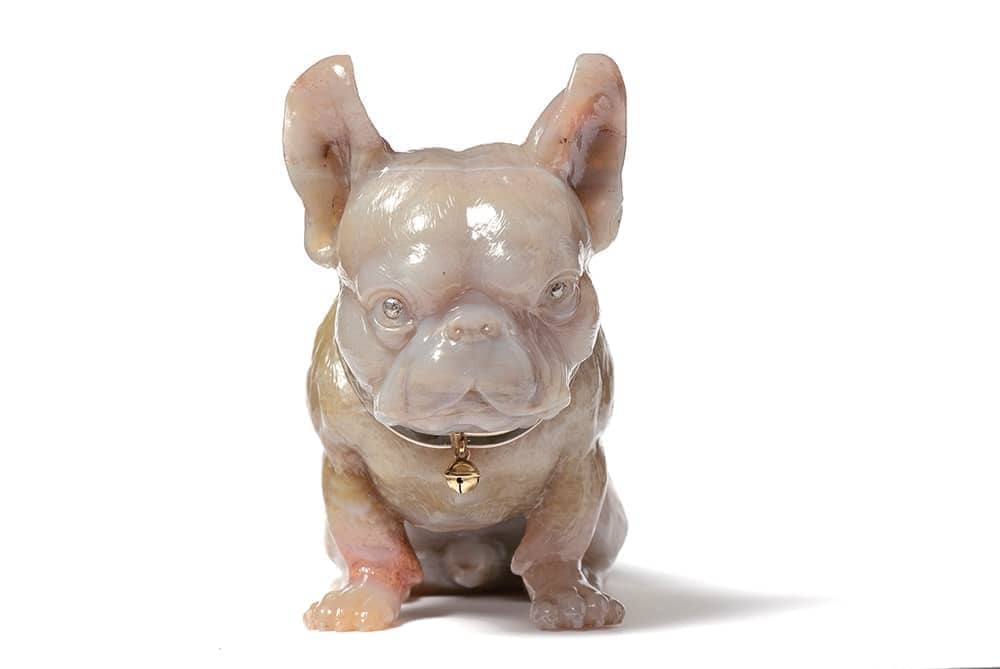After all the magnificent presents she’d received from his workshop, Queen Alexandra was eager to meet the most famous jeweller in Russia. ‘If Mr Fabergé ever comes to London,’ she said to Henry Bainbridge, a manager of the design house, ‘you must bring him to see me.’ Peter Carl Fabergé paid a rare visit to the capital to inspect his new shop — the only one located outside the Russian empire — at 48 Dover Street in 1908. ‘The Queen wants to see me! What for?’ he asked an exasperated Bainbridge. ‘Well, you know what an admirer she is of all your things.’ Insisting that she would not wish to be troubled, Fabergé demurred, polished off his lunch and requested the time of the next train.
Fabergé, whose work for both Edwardian and Romanov society goes on display at the V&A this week, was by most accounts a modest man of immodest creativity. Of Huguenot heritage, he grew up in St Petersburg, where his father had established a traditional jewellery business, and trained as a goldsmith before completing the Grand Tour. Inheriting the family company in 1872, Fabergé fils proceeded to transform and enlarge it until he stood at the head of 500 innovative workers, among them his younger brother, Agathon, and four sons.
While the ‘soul’ of the firm remained in St Petersburg, a second branch had opened in Moscow and a third in Odessa when Fabergé began to weigh up Paris and London as possible locations for an international outpost. His choice of London in 1903 was influenced by both its growing reputation as a meeting point for buyers, and the connections between the British royal family and his patrons in Russia.
To Fabergé’s manufacture of cooking pots were added orders for components for hand grenades
Alexandra, consort of King Edward VII, was the sister of Emperor Alexander III’s wife, Maria Feodorovna, and Edward’s niece, Alexandra Feodorovna, was married to Emperor Nicholas II.







Comments
Join the debate for just £1 a month
Be part of the conversation with other Spectator readers by getting your first three months for £3.
UNLOCK ACCESS Just £1 a monthAlready a subscriber? Log in